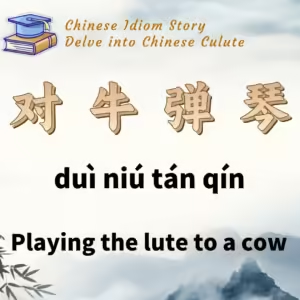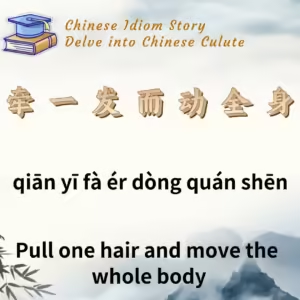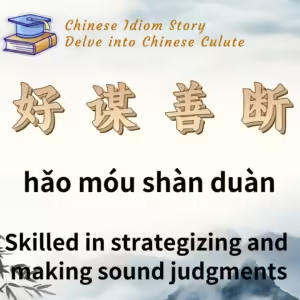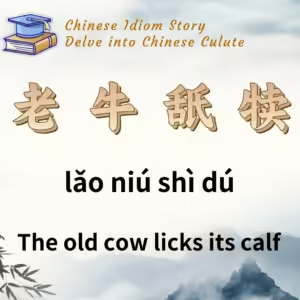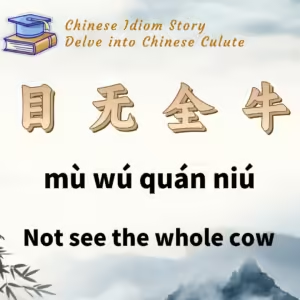
Chinese Idiom: 目无全牛 (Mu Wu Quan Niu)
English Translation: Not see the whole cow
pīn yīn: mù wú quán niú
Idiom Meaning: This idiom describes a level of skill so advanced that one no longer sees the entire object or task but focuses on its finer details. It is used to express extreme proficiency and mastery in a particular skill or technique.
Historical Source: Zhuangzi (《庄子》), specifically from the chapter “Yang Sheng Zhu” (《养生主》).
Idiom Story:
During the Warring States period, the Daoist philosopher Zhuangzi recounts a story about a skilled chef who worked for King Hui of Liang. This chef was renowned for his extraordinary skill in butchering cattle. He could slice through the bones and tendons with such finesse that his knife seemed to glide effortlessly through the animal’s body, never encountering any obstruction.
King Hui, amazed by the chef’s expertise, asked him how he had achieved such remarkable skill.
The chef responded, “When I first started butchering, I could only see the whole cow. I didn’t know where to begin cutting. But after many years of practice, I no longer see the whole cow.”
King Hui, puzzled, interjected, “If you no longer see the whole cow, how do you know where to cut?”
The chef explained, “By now, I understand the structure of the cow completely. I know where the tendons and bones are without seeing the whole cow. I can sense the natural gaps and spaces where the knife should go. I cut by feeling the structure of the cow with my knife, rather than relying on sight. My skill allows me to follow the natural lines and separations in the cow’s body, making the task smooth and precise.”
The chef also elaborated on the art of handling and changing knives. King Hui was deeply impressed and enlightened by the chef’s explanation, realizing that true mastery lies in understanding and working with the inherent structure of the object rather than just seeing it as a whole.
The phrase “目无全牛” (mù wú quán niú) has since come to symbolize a level of proficiency where one’s skill transcends the basic understanding of the task, focusing instead on the finer details and nuances.

